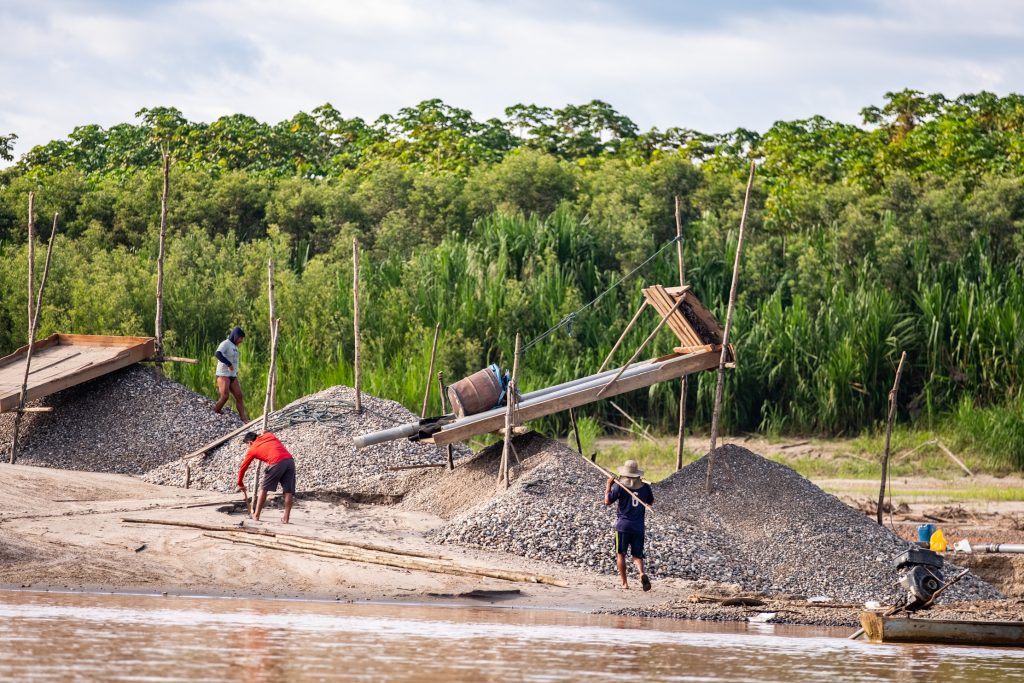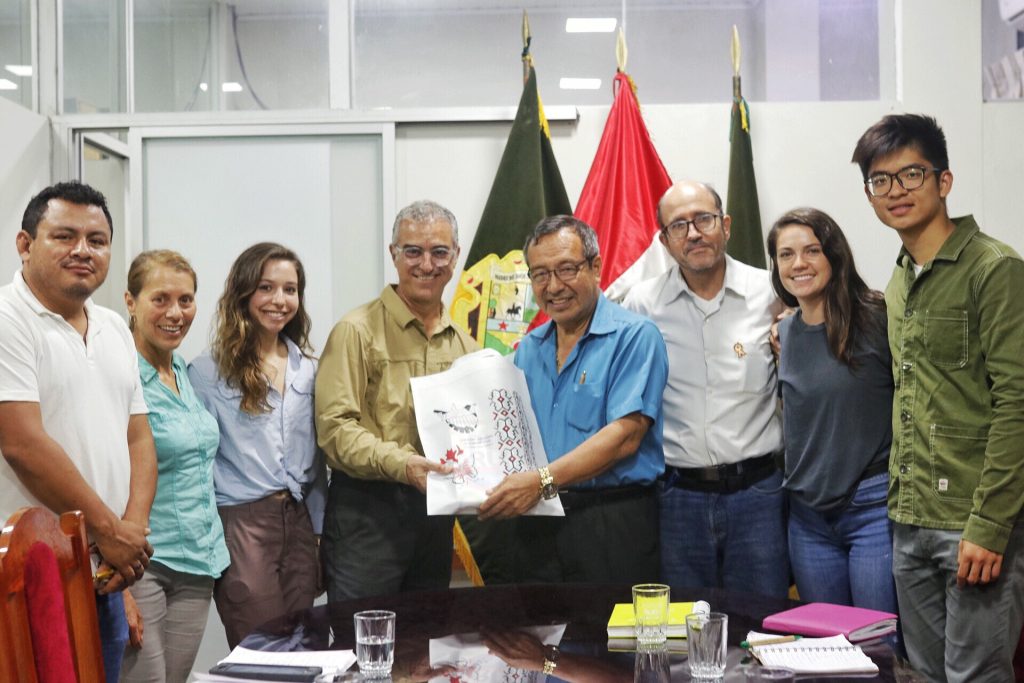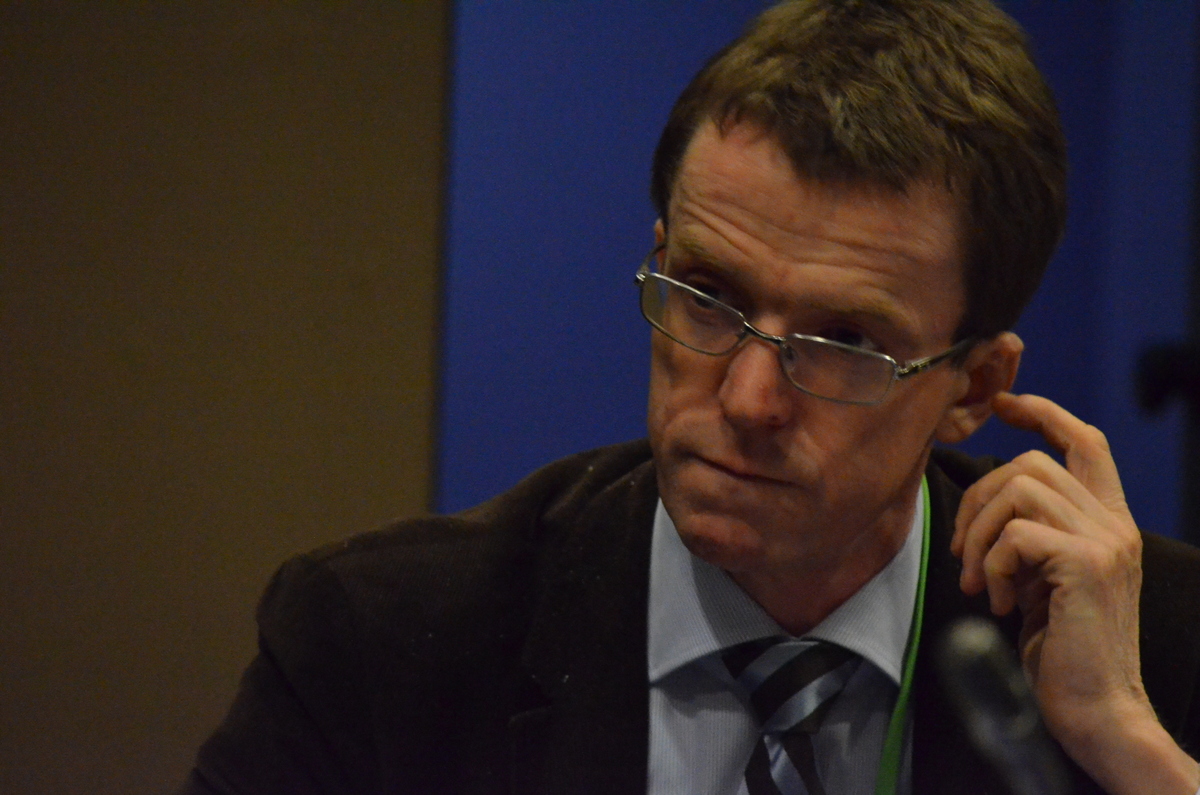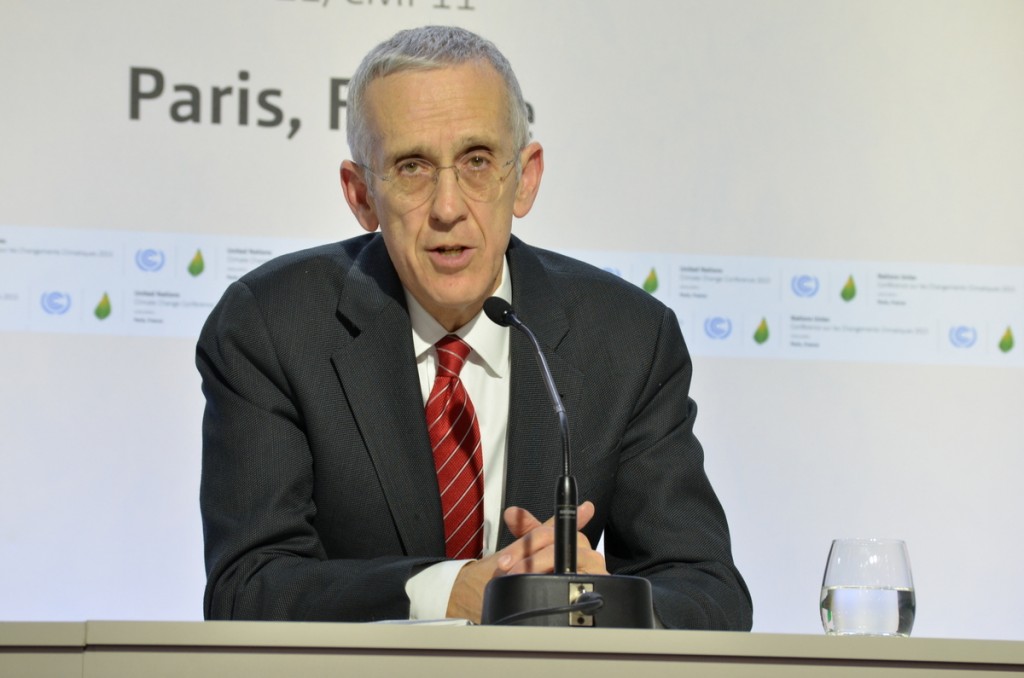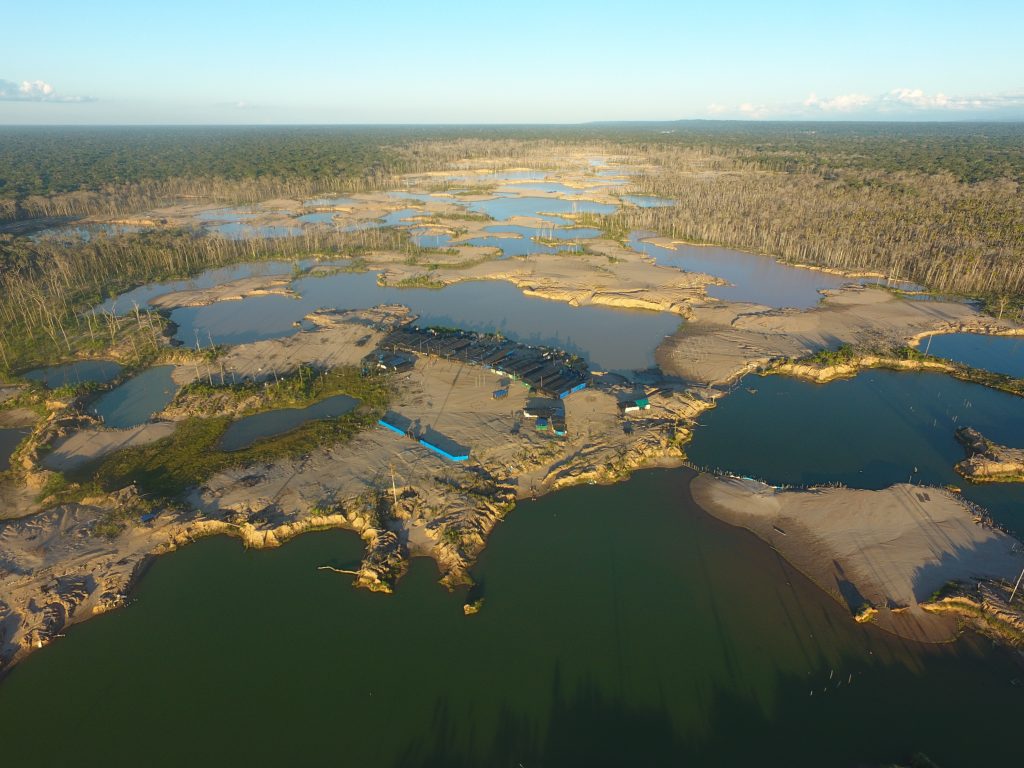
Because of widespread media attention over the past five years or more — who can resist a story that combines gold, organized crime, prostitution and environmental devastation of a pristine rain forest? — Madre de Dios in the southern Peruvian Amazon has become known worldwide as a kind of hell on earth.
But as my story for Mongbay explains, a lot can happen in a year. La Pampa, the worst but by no means only large-scale illegal mining operation, was raided and largely shut down by the national government in February 2019. And the previous month, Madre de Dios — a region about the size of South Carolina known as the most biodiverse place on earth — elected a governor who wasn’t a miner. Instead, Luis Hidalgo Okimura is intent on reducing mining, formalizing and taxing miners who remain, and rescuing his home region from further environmental destruction.
I got to interview Hidalgo with three of my students in his government conference room not far from our hotel in Puerto Maldonado. After an hour and a half, I knew I had the makings of a good story. Specials thanks to my colleague Cesar Ascorra, national director of CINCIA, for arranging the interview. CINCIA is a Wake Forest-led science project that has developed proven strategies to repair deforested tropical areas and mitigate the public health threat of 185 tons of mercury dumped a year in Madre de Dios.
It was also a pleasure to work again with Mongabay editor Morgan Erikson-Davis. She not only accepted my story pitch, she enhanced the story by both downloading and analyzing satellite images that showed expanding deforestation outside La Pampa.
